Bill Viola Quotes & Sayings (Page 2)
Bill Viola quotes and sayings page 2 (74 year old artist). Here's quote # 11 through 20 out of the 32 we have for him.
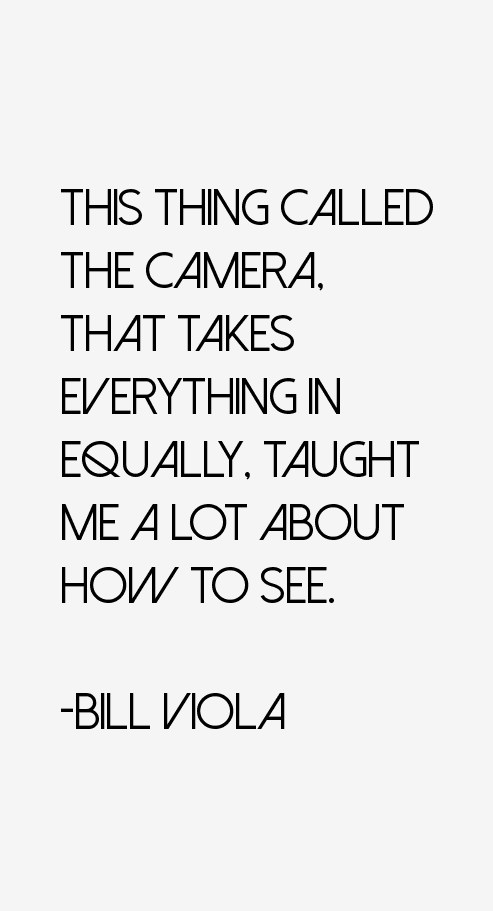
“This thing called the camera, that takes everything in equally, taught me a lot about how to see.”
“The fundamental aspect of video is not the image, even though you can stand in amazement at what can be done electronically, how images can be manipulated and the really extraordinary creative possibilities. For me the essential basis of video is the movement - something that exists at the moment and changes in the next moment.”
“When you come into my pieces, it's not an intellectual experience, it's a physical experience. It's coming at your body. There's light, there's sound, the lights in some pieces are going on and off. There's loud roaring sound happening.”
“Emotions are the key to many aspects of life. They are precisely the elements that make human beings human. I think the fact that emotions have been reduced and put off to the side in intellectual work, particularly in the 20th Century, is tragic.”
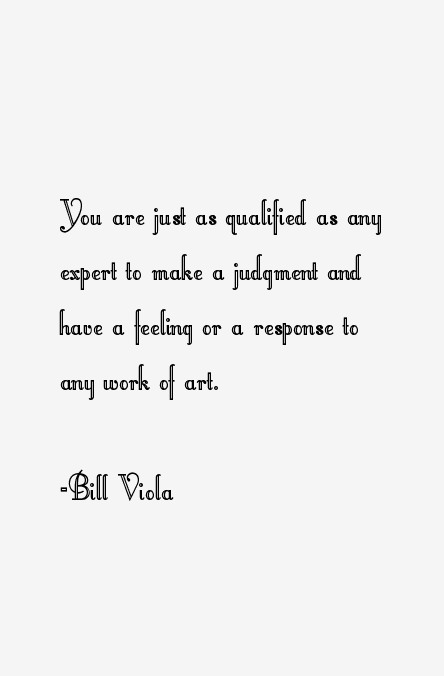
“You are just as qualified as any expert to make a judgment and have a feeling or a response to any work of art.”
“I think we're in an age where artists really have an incredible range of materials at their command now. They can use almost anything from household items - Jackson Pollock used house paint - to, you know, advanced computer systems, to good old oil paint and acrylic paint.”
“A doctor once told me that with crying you aren't sure what its derivation is. If someone comes at you with a knife, you don't cry: you scream, you try to run. When it's over and you're OK, that's when you cry.”
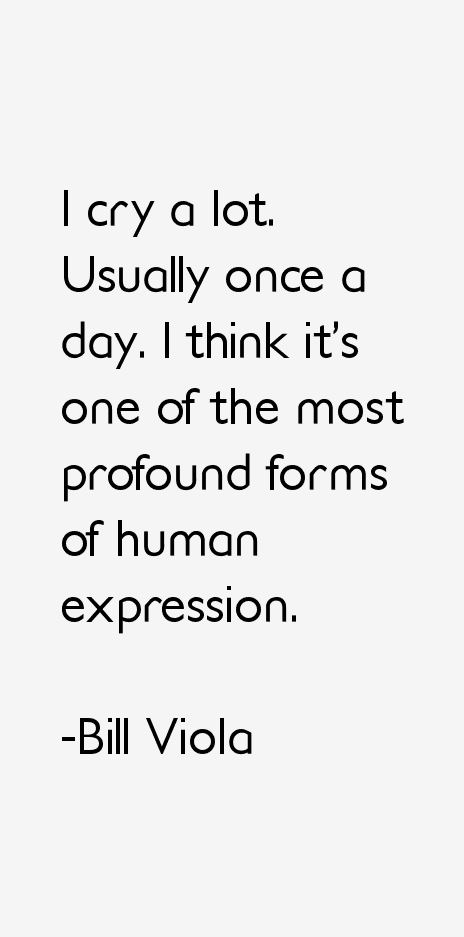
“I cry a lot. Usually once a day. I think it's one of the most profound forms of human expression.”
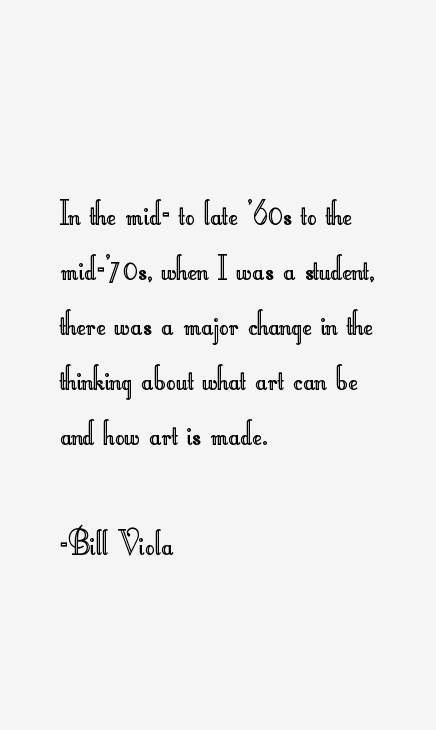
“In the mid- to late '60s to the mid-'70s, when I was a student, there was a major change in the thinking about what art can be and how art is made.”
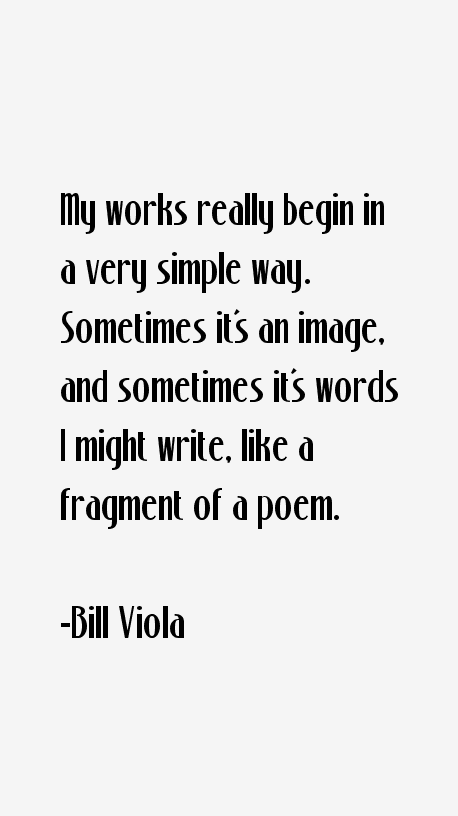
“My works really begin in a very simple way. Sometimes it's an image, and sometimes it's words I might write, like a fragment of a poem.”
Bill Viola Quotes Rating
No Ratings Yet
Leave A Comment
























